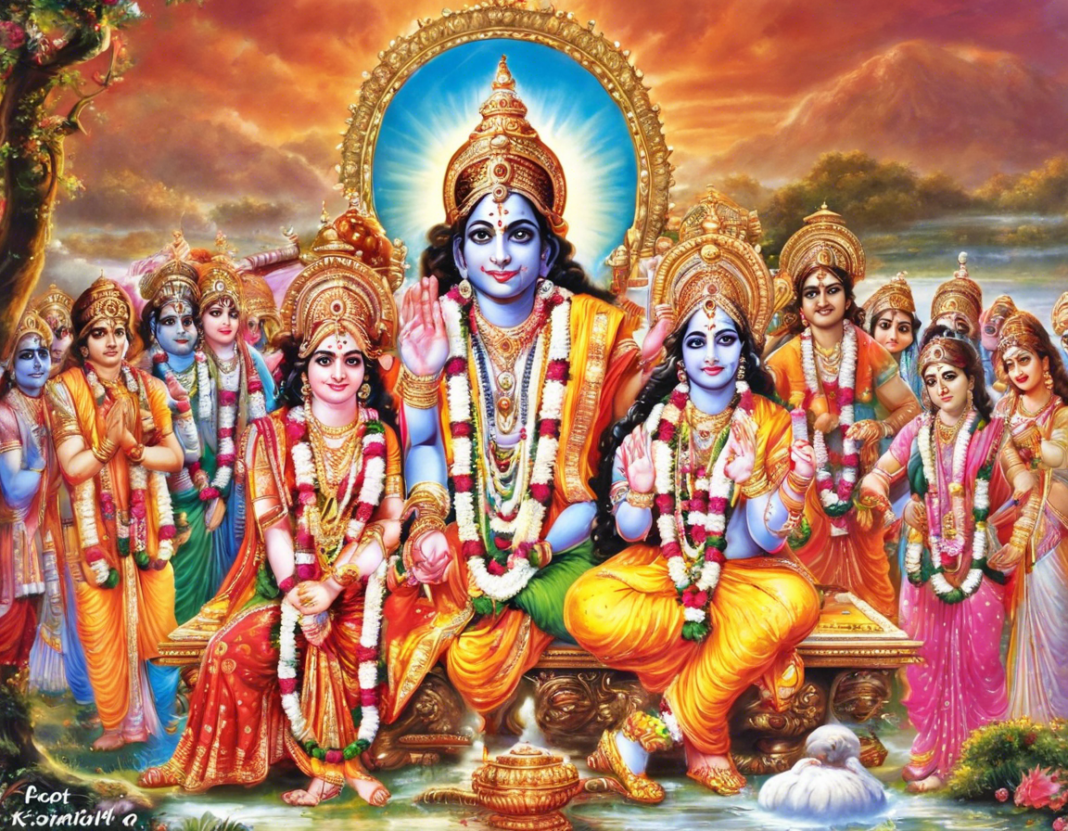Ekadashi, the eleventh day of each lunar fortnight, holds a special significance in Hindu culture and spirituality. Observing Ekadashi Vrat, or fasting on this auspicious day, is believed to bestow numerous benefits on the devotee’s physical, mental, and spiritual well-being. This day is considered highly sacred and is dedicated to Lord Vishnu. The word “Ekadashi” is derived from the Sanskrit words ‘ek’ and ‘dasha’, meaning ‘eleven’. It falls twice in a month, once during the bright half (Shukla Paksha) and once during the dark half (Krishna Paksha) of the lunar cycle.
The Significance of Ekadashi in Hinduism
Ekadashi holds immense spiritual significance in Hinduism. It is believed that on this day, the mind is naturally inclined towards spiritual activities and thoughts. Fasting on Ekadashi is seen as a way to cleanse the body and soul, and to attain spiritual upliftment. The fast is observed to attain proximity to Lord Vishnu and seek His blessings.
Ekadashi Vrat Rituals
Devotees wake up early on the day of Ekadashi and take a bath before sunrise, a practice known as ‘abhyanga snan’. They then offer prayers to Lord Vishnu and perform puja rituals. The fast begins at sunrise and ends on the following day after the sunrise of ‘Dwadashi’, the twelfth day. Devotees consume only one meal in the afternoon on Ekadashi, which is made of specific ingredients allowed during the fast.
Types of Ekadashi Vrat
There are various types of Ekadashi Vrat observed throughout the year. Some of the most popular ones include:
Nirjala Ekadashi
Nirjala Ekadashi is one of the most significant Ekadashi fasts where devotees abstain from consuming food and water throughout the day and night. It is believed that observing this fast is equivalent to fasting on all 24 Ekadashis in a year.
Vaikunta Ekadashi
Vaikunta Ekadashi is celebrated with great enthusiasm in South India. It is believed that observing this fast helps in attaining Moksha (liberation) and also opens the doors of Vaikuntha, Lord Vishnu’s abode.
Mohini Ekadashi
Mohini Ekadashi is observed to seek the blessings of Lord Vishnu for a happy and prosperous life. It is believed that observing this fast with devotion can fulfill wishes and remove obstacles from one’s life.
Benefits of Observing Ekadashi Vrat
Fasting on Ekadashi is believed to have numerous benefits on the physical, mental, and spiritual well-being of an individual. Some of the key benefits include:
- Detoxification: Fasting helps in detoxifying the body, cleansing the digestive system, and removing toxins.
- Promotes Discipline: Observing regular fasting on Ekadashi instills a sense of discipline and self-control.
- Spiritual Upliftment: The heightened spiritual energy on Ekadashi aids in meditation, prayers, and spiritual practices.
- Karma Cleansing: It is believed that observing Ekadashi Vrat helps in reducing the negative effects of past karma.
Common Practices During Ekadashi Vrat
- Meditation and Chanting: Devotees engage in meditation, chanting of mantras, and reading of scriptures to enhance spiritual growth.
- Charity and Donation: Giving alms, feeding the poor, and helping others are considered auspicious during Ekadashi.
- Avoiding certain foods: On Ekadashi, devotees avoid grains, beans, and certain vegetables and consume only specific foods like fruits, nuts, and dairy products.
Frequently Asked Questions (FAQs) about Ekadashi Vrat:
Q: Can anyone observe Ekadashi Vrat?
A: Yes, Ekadashi Vrat can be observed by anyone who wishes to align themselves with spiritual practices and seek the blessings of Lord Vishnu.
Q: Is it mandatory to observe a complete fast without water on Ekadashi?
A: While some Ekadashi fasts like Nirjala Ekadashi involve abstaining from water, others allow for the consumption of water or specific liquids like milk or fruit juices.
Q: What if someone has health issues and cannot observe a complete fast on Ekadashi?
A: Individuals with health concerns can modify their fast by consuming light foods or fruits and seek the guidance of a healthcare provider.
Q: Are there any specific prayers or mantras to be recited during Ekadashi Vrat?
A: Devotees can recite Vishnu Sahasranama, Vishnu Chalisa, or other prayers dedicated to Lord Vishnu during Ekadashi Vrat.
Q: Can Ekadashi Vrat be observed by individuals following a different spiritual path or religion?
A: While Ekadashi Vrat is a Hindu tradition, individuals from other spiritual paths may also choose to fast on this day as a form of spiritual practice.
Observing Ekadashi Vrat is a deeply spiritual practice that offers devotees an opportunity to cleanse their mind, body, and soul, and to deepen their connection with the divine. By following the prescribed rituals, observing the fast diligently, and engaging in spiritual activities, one can experience the immense benefits of this sacred day in Hindu tradition.












